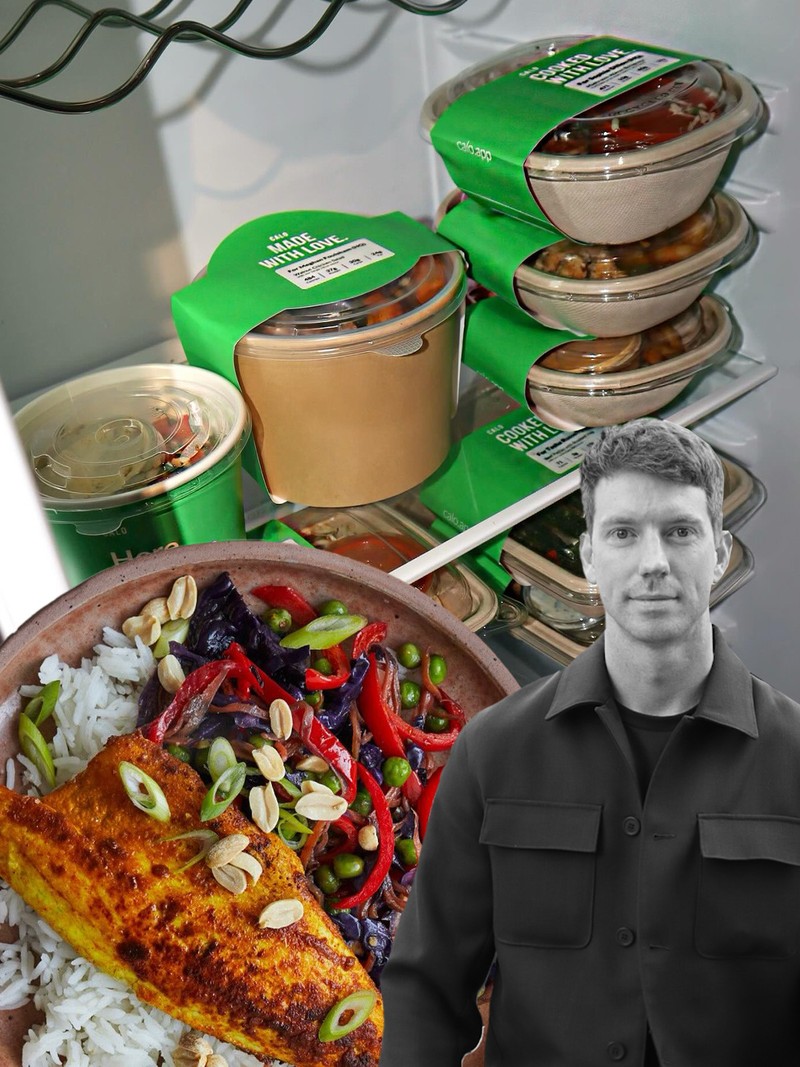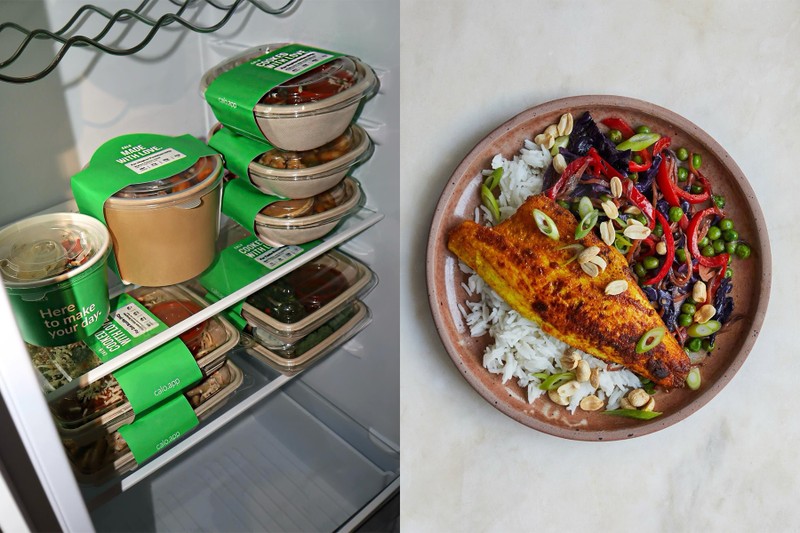
My Business Rules: Caspar Rose
Get Startup Experience Before You Start One
When I launched Fresh Fitness Food, I’d never even had a work email address. I didn’t go to university – I went straight from washing dishes to working in Michelin-star kitchens. I had no financial acumen, no admin skills, and no idea how to run a business. Looking back, I probably did the business a disservice by starting it with zero experience. If I’d spent two or three years inside a startup first, I think we could’ve achieved in five years what took us ten. So my first rule is simple: before you build a business, learn how one works.
Blend Naivety With Experience
There’s a sweet spot between knowing enough to be useful and being naive enough to keep going when things get tough. I’ve seen people leave corporate jobs to start businesses and quit at the first hurdle – because they’re too rational to push through the chaos. You need a bit of blind optimism to survive the early days. So get some experience, yes – but don’t lose the fire that makes you believe you can do something unreasonable.
Don’t Start a Food Business Unless You Can Scale It
The food industry is brutal. The barrier to entry is low – anyone can cook something in their flat and start delivering meals. But that means it’s saturated with niche ideas that don’t scale. If you’re going into the industry, combine your passion with a big market. Don’t chase a tiny subset of customers. Build something that has the potential to grow – otherwise, you’ll be fighting uphill forever.
Know Your Weaknesses & Find Mentors
I had to learn everything on the job. Finance, operations, people management – I was a generalist out of necessity. One of the smartest things I did early on was find people who could fill the gaps. If you’re not strong on numbers, get someone who is. If you’re not a natural leader, learn from people who are. You don’t have to be good at everything – but you do need to know what you’re missing.
Lead Like A Human, Not A Chef
Kitchen culture is intense. I came from environments where shouting, humiliation and hierarchy were the norm. Gordon Ramsay had sparkling water for sous chefs and plastic cups for everyone else – just to reinforce the pecking order. That kind of leadership doesn’t work in an office. When I transitioned to business, I had to unlearn a lot. People respond to empathy, clarity and collaboration – not fear. If you want to build a team that lasts, lead with respect.
Be Optimistic
There were moments when everything was falling apart – our packaging failed, food was leaking into customers’ bags, and we couldn’t pay our bills. Most people would’ve quit. But we kept getting out of bed saying, ‘This is solvable.’ I once met with 25 venture capital funds and got 25 nos. They told me the margins didn’t work, the idea was too complicated, and it wasn’t scalable. But we pushed through and ended up scaling the business from that point. When smart people tell you you’re wrong, it takes unreasonable optimism to keep going. That mindset is everything.
Lead From The Front & With Transparency
If you’re going to ask your team to go through hell, you should walk in first. I believe in leading from the front – showing up, staying accountable and setting the tone. But leadership isn’t just about grit; it’s about clarity and honesty. I try to give my team full context, no matter their role. Whether someone’s in marketing or ops, they make better decisions when they understand the bigger picture. Transparency builds trust, and trust builds better operators.
Build A Mission-Driven Team & Look After Them
We’ve always had high retention – some of my team have been with me for over a decade. I think that’s because we’ve built a mission-driven business. Good people are drawn to purpose. We also hire for diversity of background, which strengthens decision-making. But culture isn’t just about hiring – it’s about how you treat people. We have clear rules: no Slack on personal phones, no emails on holiday. If someone breaks that, they might get a warning. We want 100% focus at work, and 0% intrusion outside of it. That’s how you protect energy, mental health and long-term performance.
Be Transparent, Even When It’s Uncomfortable
Whether it’s with suppliers, partners or investors, I operate with full transparency. If someone pushes us on price, I’ll send them the spreadsheet. I’ll show them exactly what it costs to make our meals and ask: do you want me to make money and keep innovating, or lose money and burn out? It can be jarring, but it builds trust. I don’t believe in hiding anything – integrity and openness are the foundation of every strong relationship.
Redefine Failure & Build The Right Support System
Some days I feel like I’m winning. Other days, I feel like I’m failing. Right now, we’re growing fast but struggling with profitability – and that’s tough. I could give you the usual clichés about learning from failure, but the truth is, it’s hard. What helps is having a strong, supportive team who trust your decisions, and prioritising your physical and mental health. I train five or six times a week, and it’s transformative. A bad day can turn into clarity and energy after an hour in the gym. When those pillars fall – team and wellbeing – everything else becomes impossible.
Take Risks, But Do The Maths First
I like to think I’m a risk taker, but the reality is more measured. We model everything. We ask people who’ve done it before. We scope things properly. If a decision is low cost and reversible, we make it fast. If it’s high risk and hard to unwind, we slow down and do the work. Risk is part of the game – but it’s not a gamble if you’ve done your homework.
Ignore The Competition
There’s a reason racehorses wear blinkers. Every time I look at the competition, it’s a distraction. At Calo, we’re building something different – daily meal delivery, personalised nutrition, 24/7 customer service. No one else is doing what we’re doing, so I don’t waste time comparing prices or features. I stay focused on our category, our customers and our mission. That’s where the real growth happens.
Don’t Be Afraid To Use AI
We’ve made it a rule at Calo: ask the robot before you ask your manager. AI can save time, boost productivity, and help you level up – but only if you’re curious enough to use it well. The information is out there; the only limit is how you engage with it. That said, I don’t think AI is great for creative writing or ideation – humans still do that best. But if you use it to clear the decks, you can focus more deeply on the work that really matters.
Make Decisions Based On Principles
I have principles for decision-making in business and others for my personal life. One of my business principles is simple: ask someone who’s done it before. It’s a high-ROI habit – you save time, money and avoid unnecessary mistakes. In my personal life, one of my principles is to help someone when they ask, as long as it doesn’t cost me anything. These rules keep me grounded. When things get chaotic, I go back to them.
Stay Mission-Focused & Think Big
My life’s mission is to make my community healthier – primarily through food. Right now, that means tackling the UK’s health challenges, especially around obesity. But the vision is global. We’re looking at launching across Europe and the US next. Everything we do at Calo is about moving the needle – not just on business metrics, but on real-world impact.
Inspired by Caspar’s mission? Try the food for yourself: Try Calo.App
DISCLAIMER: We endeavour to always credit the correct original source of every image we use. If you think a credit may be incorrect, please contact us at [email protected].


